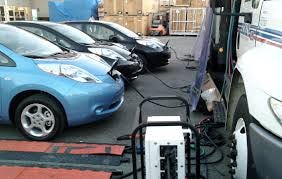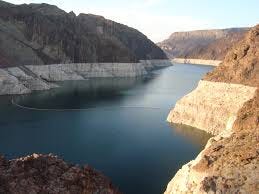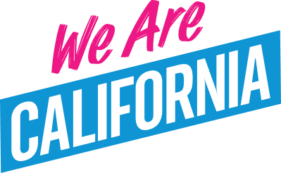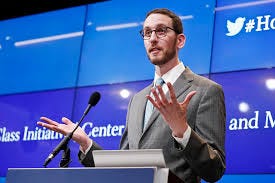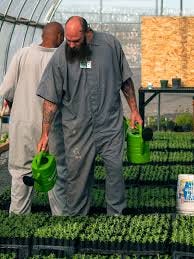Issue #209: Is it time for California to squabble up?
ICI brings you this week's news highlights
With your help, we’re more than two-thirds of the way to funding the next Independent California Poll. Thank you again to everyone who donated!
If you haven’t donated yet, time is running out to make a tax-deductible donation in 2024! Please don’t wait—we want to get the results of this poll into the hands of the media before Donald Trump takes office on January 20.
California defends our green policies
Mickey Mouse owes workers big time!
How to best to defend California values?
Please, please ask anyone you know to subscribe to this newsletter and donate to our next poll. The next four years are going to be tremendously challenging for California, and we need to organize as many Californians as we can to fight back.
Remember… 58% of Californians think we’d be better off as our own country!
WINS FOR THE ENVIRONMENT
US Supreme Court dismisses red state challenge to California air pollution rules
David G Savage, LA Times
“When Congress adopted national air pollution standards in 1967, it said California could go further because it was already enforcing strict standards to combat the state’s worst-in-the-nation problem with smog.
Ohio and other red states say this special authority violates “core constitutional principles because no state is more equal than the others. And Congress does not have the general power to elevate one state above the others.... Yet in the Clean Air Act, Congress elevated California above all the other states by giving to the Golden State alone the power to pass certain environmental laws.”
Without commenting, the justices said they would not hear the constitutional claim.
Although Monday’s brief order closes the door on a constitutional challenge to California’s anti-pollution standards, the court on Friday cleared the way for a different, more targeted legal challenge.”
Oil companies are also challenging California clean air rules
Alejandro Lazo, CalMatters
"The U.S. Supreme Court announced today that it will review whether the oil industry has the standing to try to overturn a decision that allowed California to set its own limits on pollution emitted by automobiles.
The case filed by oil companies, other fuel producers and 17 other states argued that the federal government exceeded its authority under the Clean Air Act when it granted California a waiver to set its own tougher auto emissions standards.
The Supreme Court agreed to only examine whether the fuel companies that appealed a lower court ruling have the standing to sue. Oil and other fuel companies are not regulated under the California standards; only automakers are."
Biden administration approves California electric car mandate. Will Trump try to revoke it?
Alejandro Lazo, CalMatters
“The Biden administration today approved California’s groundbreaking mandate phasing out new gas-powered cars just weeks before the incoming Trump administration poses a threat of overturning electric vehicle and climate rules.
The granting of the waiver by the U.S. Environmental Protection Agency allows California to move forward in requiring 35% of new 2026 model cars sold in the state to be zero-emissions, 68% in 2030 and 100% in 2035. Nearly all zero-emission cars are powered by electricity.
Ann Carlson, an environmental law professor at UCLA, said the decision to grant the waivers makes it much more difficult for the Trump administration to challenge them since they would have to try to reverse an agency decision, rather than deny a pending waiver. Nevertheless, a legal battle over the rules is likely, she said.”
Scientists are turning fog into water. Here’s what it could mean for California
Hannah Hageman, SF Chronicle
“The effort comes as global warming pushes California’s climate pendulum from brutal droughts to extreme deluges. As these swings intensify, water supplies are becoming increasingly precious. Fog, however, blankets parts of California through dry periods and heatwaves. Scientists, and investors, say this untapped water resource could make communities more resilient, while stirring an impulse to conserve.”
Opinion: California’s next water war won’t concern agriculture. It will be about AI
Dean Florez, Sacramento Bee
“It may sound implausible today, but consider this: agriculture’s water use has plateaued, constrained by efficiency improvements and physical limits on expansion. Meanwhile, AI’s growth is explosive, unbounded and global in scale. If AI continues its current trajectory, California could see data center water demand double or triple within a decade. In time, AI’s water consumption could rival agriculture’s, forcing a reckoning between two sectors critical to California’s economy and identity. The implications of this shift are profound. For years, water conflicts in California have been framed as a binary struggle between farms and cities for water that is not dedicated to the environment. AI changes this narrative, introducing a third, rapidly growing human contender. How will California allocate its limited water resources when AI’s needs conflict with those of farms and urban areas? AI’s water demands will disproportionately affect regions already grappling with scarcity, such as Silicon Valley and rural desert areas.”
America's largest reservoir is filling up with water thanks to California
Erin Rode, SFGate
“The fate of the Nevada reservoir has long been intertwined with the actions of farmers in California’s Imperial Valley, who hold some of the oldest water rights to the Colorado River and receive the largest share of the drought-stressed river’s water in California. Now, efforts to cut back water use in California’s hot and dry southeastern corner seem to be paying off.
Lake Mead’s water level is up by 16 feet after two years of voluntary conservation by California water users, according to the Colorado River Board of California. Those users have conserved over 1.2 million acre-feet of water since first making a late-2022 commitment to use less. That puts the formal goal, to use 1.6 million acre-feet less water by the end of 2026, well within reach and will allow more water to remain in Lake Mead instead of continuing on to downstream water users.”
California declares an emergency over bird flu in cattle
Officials have discovered the virus in 645 dairy herds, more than in any other state so far.
Apoorva Mandavilli, NY Times
“In a stark acknowledgment of the increasing seriousness of bird flu’s spread, Gov. Gavin Newsom of California declared on Wednesday that the outbreak of infections among the state’s dairy cattle constituted an emergency.
The announcement followed news earlier in the day that an individual in Louisiana had been hospitalized with bird flu, the first infected American to become severely ill.
The virus, H5N1, cannot yet spread easily among people, and it still poses little danger to the average American. Pasteurized dairy products are still safe to consume.
But the past few weeks have brought a steady drumbeat of cases in people, dairy cattle, birds and other animals. Each infection gives the virus a chance to take on a form that could cause a pandemic, experts warned.”
We love to hear from readers like you! Please reply to this email with suggestions for the next issue.
MORE ON TRUMP FIREWALL
Trump 2.0 needs a smarter, more local resistance
Richard Kreitner, Democracy Journal
“I suspect secession will define the left’s reaction to the new Trump era in a different way, and that is what we might call personal secession—withdrawal from the noise pollution of national politics, renewed commitment to tending one’s garden. Rather than a physical withdrawal, we might witness a more internal, psychological withdrawal from the very ideals of national unity or patriotism that once felt so central to American identity. People may reject national narratives that feel hollow or no longer resonate with their lived realities. This kind of secession could mean investing more energy in community-building, local organizing, or initiatives that improve life close to home, bypassing any reliance on federal intervention or approval.”
‘Trump-Proofing’ California will be a political minefield
Aaron Cantú, Capital & Main
“One glaring challenge continues to be the high cost of energy for millions of residents. The state’s climate plan depends on expanding its grid while simultaneously increasing renewable energy sources. Another issue is how much California will be able to cut emissions as the federal government likely strips away its ability to promote electric vehicles with clean air rules, though Gov. Gavin Newsom has vowed to offer state tax credits.
Yet over the last two years, the governor has chipped away billions of dollars from his own climate agenda budget — partly on the assumption that those cuts would be backfilled by federal dollars, money that the new Trump administration will likely be unwilling to spend.”
Commentary: Political division only benefits Trump, billionaires. Why Californians need to come together
John Kim and Sabrina Smith, CalMatters
“Since the election, there has been a lot of finger-wagging about what happened in California.
Headlines proclaimed that California shifted to the right, that our values of inclusion and care are to blame. Centrist Democrats and conservative pundits alike claim the Democratic Party has gone too far to the left.
This oversimplified narrative overlooks an important red flag: the unchecked power of corporate billionaires who spent heavily peddling lies and misinformation. Even worse, it succeeds in doing precisely what the political right and Trump want — to divide working people, blame immigrants and other vulnerable Californians, while billionaires line their pocketbooks.
The Democratic Party needs to acknowledge that voters’ economic anxieties and fears are driven by genuine consequences of policies advanced by corporate billionaires. California leaders need to accelerate progress on an economic agenda for working people that delivers concrete improvements to our lives — affordable housing, health care, higher wages and a stronger safety net for our families.
When voters feel abandoned by our government, they are less likely to identify with the government as an extension and expression of their democratic power. They are less likely to vote and more susceptible to authoritarian appeals. The best defense against Trumpism is showing that government can improve the lives of all Californians — from small business owners to farm workers, from educators to tech workers, and from the service industry workforce to gig workers.
We Are California strives to be a home for people who are sick of politics as usual and who believe in our state’s values of community and inclusion. Bringing together Californians from every walk of life to protect and defend California against the worst of the coming federal policy, and to advance state policies that serve the majority of Californians, this is what people want — not an agenda of corporate billionaires.”
Trump is already pushing California around
Blanca Begert and Alex Nieves, Politico
“‘Manufacturers and riders associations said they didn’t think the demand was high enough to require 50 percent motorcycle sales by 2035 and raised issues around limited range, charging infrastructure and insufficient purchase incentives. And regardless of who is president, the motorcycle rule would likely have encountered resistance.
”You know the Harley-Davidson crowd,” said Dan Sperling, a former CARB member and founding director of the Institute for Transportation Studies at the University of California, Davis.
CARB, for its part, said it canceled the vote and the rule because, after delaying it twice in January and November, it was bumping up against an administrative deadline to either vote on or withdraw rules within one year of them being introduced.
There’s precedent for waiting till Trump passes. CARB only passed one major rule last time Trump was in office: on zero-emission buses, in 2018. It waited until January 2020 to submit it to EPA, which granted the waiver in 2023.”
The internal fight over California’s global leadership
Jordan Wolman, Politico
”Sen. Scott Wiener, the ambitious San Francisco Democrat who wrote the law and has since become chair of the Senate Budget Committee, is warning that California is denting its leadership at a crucial time.
Wiener crafted the measure in part to be a backstop to a similar Securities and Exchange Commission rule likely to be dismantled by Trump — but CARB’s new enforcement strategy threatens to significantly weaken that backstop. It would grant companies a one-year reprieve from penalties from CARB for incompletely reporting their direct emissions, which would give companies some breathing room to set up their reporting regimes while avoiding fines of up to $500,000 per year. (A lot of them still have to comply with European rules, though, which are already in effect.)
To be clear, the law merely requires companies to account for their emissions — not reduce them. Even that accounting work is too burdensome and unreliable, the California and U.S. chambers of commerce have been arguing in their lawsuit against the law as well as another one, SB 261 by Sen. Henry Stern, which requires companies to disclose climate-related risks to their bottom lines.”
It’s time for California to squabble up
One lesson our state can learn From Kendrick Lamar – Drake feud: Go on offense
Joe Mathews, Zócalo Public Square
“Trump’s power derives from his ability to sow fear—fear that his administration will steal away our immigrant neighbors (and perhaps their citizen family members), arrest those of us who oppose him, attack the rights of LGBTQ+ people, ban vaccines, roll back laws that protect us from climate disaster, and command the military to invade cities that don’t support him.
Lamar’s argument is that you beat fearmongers by making them even more afraid of you. But will California buy it?
It’s concerning that the initial response to Trump has been so unthreatening, with state leaders emphasizing that they want to work with the new president if possible. Maybe that’s justifiable—part of the preliminary dance—with Trump not yet in office. But Trump has threatened revenge against our state, and pledged to be a dictator and terminate the Constitution. Let’s not pretend that we’re going to be partners.
As I’ve written here in recent weeks, confronting Trump this time will require building internal unity and global coalitions. But collaboration and coalition won’t be enough unless we’re willing to play offense and pursue all non-violent means to sap Trump of his power and will to damage us.
Californians will only know we have bested Trump when he’s complaining that we are too nasty and too mean, and when he seems fearful of our state. That’s not easy; Trump has survived prosecutions and assassinations attempts. But squabbling up is about making your opponent so fearful and powerless that all he can do is whine.”
Indivisible: A practical guide to democracy on the brink
Leah Greenberg and Ezra Levin, Indivisible
“Fascists depend on you, believing you’re alone and powerless. And honestly, on your own, you don’t have a ton of power. But, organized groups of individuals do have power. If you’re a fan of an existing group in your area, join it. If not, get a few friends together, start a new local Indivisible group, and build from there. Your local group is the basis for everything else you can hope to achieve in this period. This chapter includes some starter recommendations for how to pull your new, local, volunteer-led Indivisible group together, connect with others on the ground, and get to work.”
IT’S FUN TO MOCK CALIFORNIA, BUT …
California: the most hated state
Monica Corcoran Harel, Alta Journal
“For me, this place is more than its natural, material, or edible offerings. I remain in awe of a state that is so goddamn gorgeous, it doesn’t have to be so goddamn nice but that, most of the time, chooses to be friendly and welcoming anyway. California is my soulmate because it encourages me to reinvent myself over and over again—and throws its arms around every iteration. My Brooklyn-bred mom moved here at 80 to start a new life. Guess what? She struck gold in a new set of friends, “hot doctors,” and better health. “This place wants me to win,” she recently said to me.
Not everyone feels the same way. In 2022 alone, more than 800,000 people left California, the vast majority to resettle in states, like Texas, that identify as hostile territory. There is still violence and racism. Add to that about 10,000 earthquakes per year in Southern California alone, pricey real estate, and high taxes. And yet, I bet that every day, someone feels, as I did, the divine power of our motto: “Eureka!” (It means “I have found it” in ancient Greek.) And echoing Deverell, I bet it’s the ones who haven’t come to California who are heaping the most scorn on our state. Joni Mitchell once said, “When I came to California, it was the mecca of the world. Every young person on the planet wanted to be here.” Tupac sang, “California knows how to party.” In my mind, those sentiments still stand. California is a land of awe, rife with gold—and everyone is invited to the party. Don’t hold it against us.”
What’s your best defense of California?
KQED Forum gives our state a little love
Mina Kim, KQED
“Half of Americans think California is in decline, and almost half of Republicans think it’s “not really America,” according to a poll this year from the Los Angeles Times. California has long been the place out of staters love to hate, and for decades it’s been a synonym for liberalism itself. But the bashing is getting even more political — led by a president-elect who blames the state’s progressivism for everything from wildfires to the cost of groceries. This hour of Forum, we’ll show the state a little love, and hear from you: What’s your best defense of California?”
CALIFORNIA IN THE NEWS
California fines health insurer for mishandling complaints of delayed or denied claims
Katie de Benedetti, KQED
“The fine stems from the company’s failure to handle more than 10,000 complaints from its members in a timely manner over a two-year period, according to the state’s Department of Managed Health Care. Patient care advocate Linda Winkler Garvin said such behavior can be medically dangerous for patients and strain their mental health as well.
DMHC began investigating Anthem Blue Cross, also known as Blue Cross of California, after the company reported a large number of late acknowledgment and resolution letters. These are sent when a patient files a complaint, otherwise known as an appeal or grievance, after receiving a denial for health care services they requested or dealing with another delay or modification to their care.”
We love to hear from readers like you! Please reply to this email with suggestions for the next issue.
If Congress won’t regulate AI, Scott Wiener believes California must
The state senator’s AI legislation may be dead. But his fight for safer AI isn’t.
Issie Lapowsky, Fast Company
“As the AI industry boomed throughout 2023, Wiener began hosting a series of salons with AI leaders to once again explore the possibility of doing for AI safety what California had already done for net neutrality and privacy protections. “Congress has not passed a data privacy law. We passed one in California in 2018, and at the time, the industry told us that we were going to destroy innovation in California,” Wiener says, noting that the prediction turned out to be wrong. “Reasonable regulation is perfectly consistent with strong innovation.”
While SB 1047 ultimately failed, Wiener says he was encouraged by Governor Newsom’s veto message, in which he said he agreed that California “cannot afford to wait for a major catastrophe to occur before taking action to protect the public.” Wiener says he plans to introduce new AI safety legislation next year. For California, the battle over SB 1047 was just the beginning.”
Anti-slavery movement charts its path forward
Emily Schultheis, Politico
“The self-described abolitionist movement was able to notch its earliest victories against scant organized opposition. But as it now works through its internal tensions it also faces potential external threats — from a prison industry that sees these amendments as a threat to the way it operates, and a changing political mood that leaves Republicans less willing to back them.”
Disneyland agrees to state’s largest wage theft settlement of $233 million with its workers
Gabriel San Román and Andrew J. Campa, LA Times
“The settlement covers more than 50,000 current and former Disney employees.
Back pay is owed to workers from Jan. 1, 2019, when the wage law first took effect, until the date Disney adjusted wages at the end of the court fight last year. That accounts for roughly $105 million of the total settlement.
“The company has been stiffing ... workers for several years,” said Peter Dreier, a professor of public policy at Occidental College and co-author of “Working for the Mouse: A Survey of Disneyland Resort Employees.”
“They’ve denied them the back pay they’re owed while paying CEO Bob Iger over $31 million a year. It’s only fair that workers get what’s coming to them. And if the world were fair, Iger would take some of it out of his paycheck,” he said.”
California’s fourth-largest home insurer to drop all condo, rental policies
Megan Fan Munce, SF Chronicle
“On the eve of a slate of reforms meant to incentivize insurance companies to write more policies in California, Liberty Mutual has told state regulators it will stop offering new condo and renter policies in 2025. Existing customers will begin losing coverage in 2026, according to filings with the California Department of Insurance.
In 2023, Liberty Mutual insured 6.75% of the California home insurance market, which includes homeowners, condo owners and renters insurance. Filings show Liberty Mutual currently insures just under 67,500 condos and about 102,200 rental properties under its Liberty Mutual and Safeco brands.
The company hasn’t written new condo and rental policies under the Liberty Mutual brand since December 2023, according to the spokesperson.”
SF State limits investments in weapons manufacturers
Azul Dahlstrom-Eckman, KQED
“The revision is effective immediately and covers how the university’s foundation invests its endowment, currently valued at $175 million, which comes exclusively from philanthropic donations and supports scholarships, faculty and campus programming. Going forward, the university will not invest in companies that generate more than 5% of their revenue from weapons manufacturing.
The changes passed on a nearly unanimous vote by the foundation board, with all members voting in favor of the changes except for Dana Corvin, who abstained.
Though the revised policy came about after a wide student protest movement against Israel’s war in Gaza, it does not specifically mention Israel or the conflict.”
MORE ON TRUMP
Federal health care dollars are helping to house homeless Californians. Trump could stop that
Marrissa Kendall, CalMatters
“CalAIM, launched in 2022, is an expansion of Medi-Cal that allows health insurance to pay for certain things that aren’t considered traditional medical care — such as services to help homeless Californians find and keep housing. Proponents say it’s brought a much-needed infusion of money into the state’s overburdened homeless services system.
Now, with President-Elect Donald Trump about to take office, some health care organizations, homeless service providers and other stakeholders throughout California worry the program may fall apart just as it’s starting to make a difference. It’s one of many potential shake ups they’re bracing for as they prepare for a new federal administration unlikely to see eye to eye with the Golden State on many of its social welfare policies.”
Jerry Brown on Trump’s silver lining
Blanca Begert, Politico
“The four-time California governor thinks Trump’s climate change denial the first time he was in office gave a shot in the arm to the environmental movement — and that the same thing will happen again.
“It’s called reductio ad absurdum,” he said on a panel Thursday at a Public Policy Institute of California event in Sacramento. “Take something far enough, you demonstrate it’s absurd, and people want the opposite.”
Brown made climate change a signature issue during his second run as governor from 2011 to 2019, where he overlapped for two years with the Trump administration.
He’s spent a lot of time fretting about the future of the planet, but he thinks the state should be able to hold the course.“
California might walk back its call for a constitutional convention with Trump in power
Bob Egelko, SF Chronicle
“No other states have supported that proposal, and on Monday a San Francisco Democrat introduced legislation to repeal it, saying it could enable a Republican-led attack on civil rights.
“The damage a Constitutional Convention could do to Californians’ basic rights is off the charts,” said state Sen. Scott Wiener. “Once it begins, extremists could easily hijack it and drive the Convention to strip protections for women, LGBTQ people, workers, immigrants, or any number of other groups, while undermining democracy and locking in the power of the largest corporations on the planet.”
“Constitutional conventions put every right, civil liberty and underlying value of our country at risk,” said Dora Rose, deputy director of the League of Women Voters of California.”





